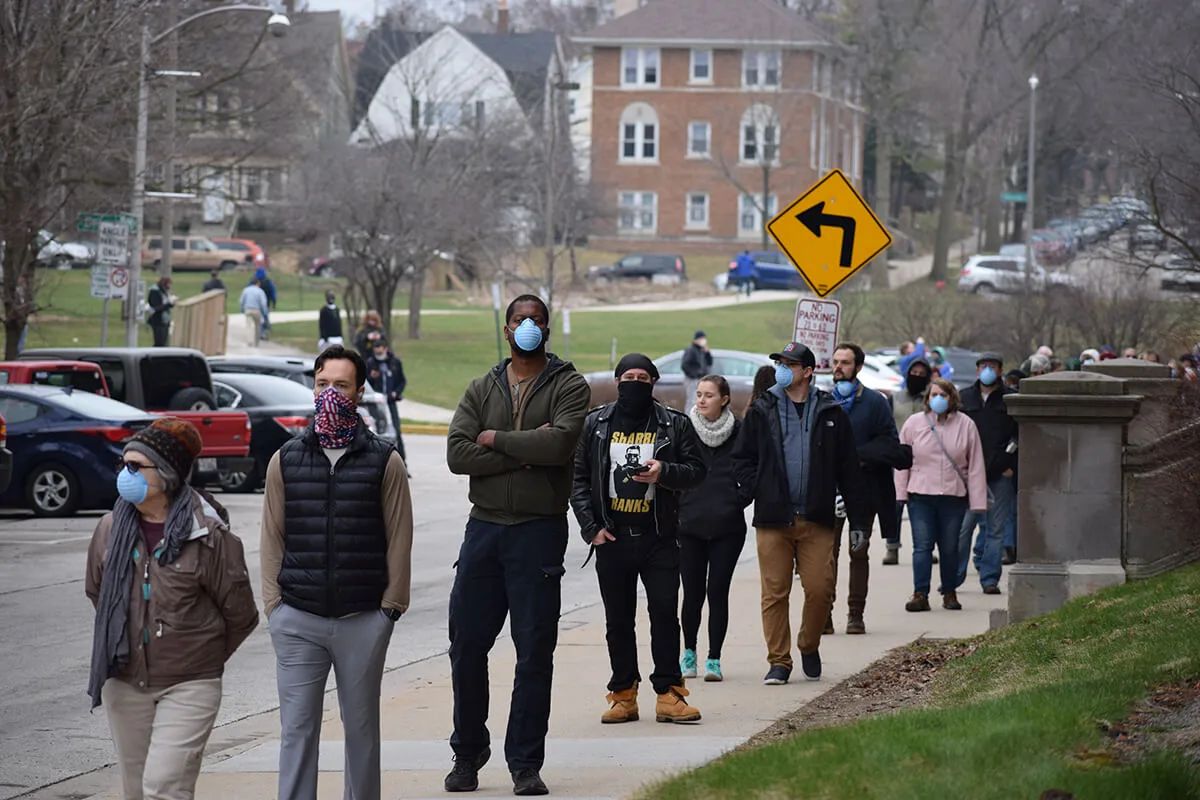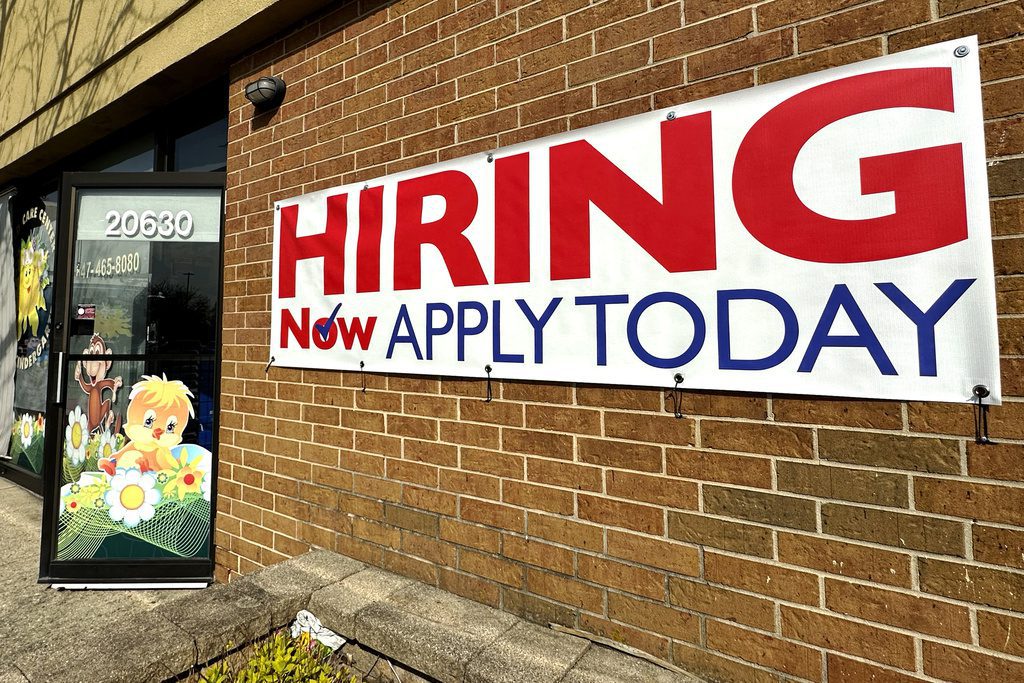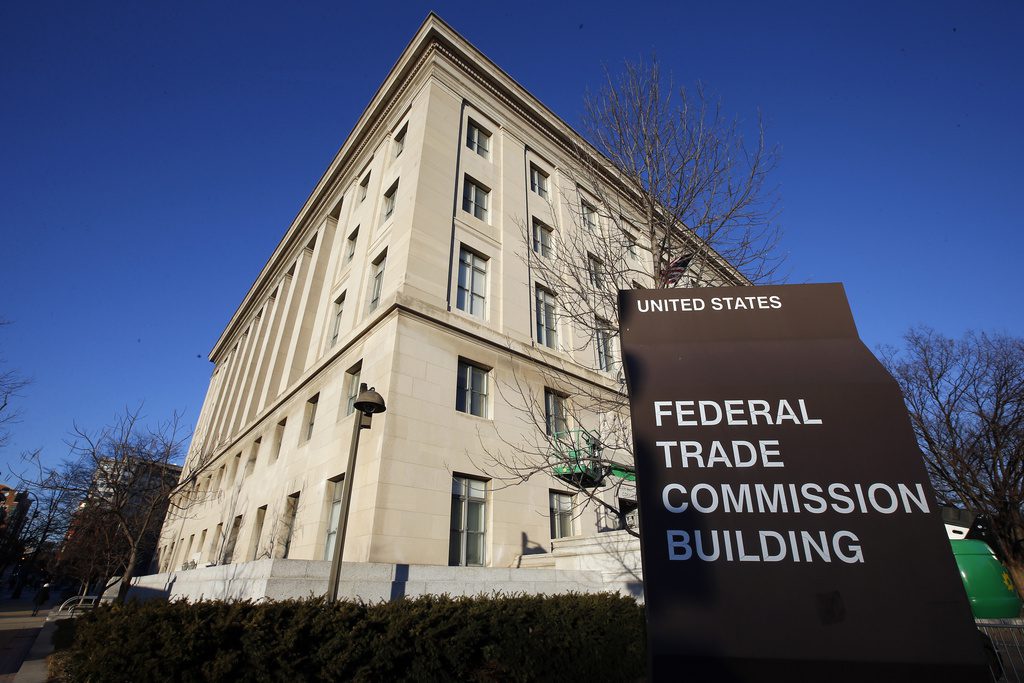
#image_title
#image_title
Study finds poll closures — spurred by a lack of workers due to health concerns — directly led to a depressed turnout.
A dramatic compression of polling places in Milwaukee directly led to significantly decreased turnout, especially among Black voters, in the April 7 election, according to a report from the New York University School of Law’s Brennan Center.
The city of 600,000 saw its polling places reduced from 182 to five on April 7 as elderly poll workers backed out and the entire state scrambled to facilitate an election in the middle of a pandemic. As a result, thousands waited in line for up to two hours to cast their vote and those without easy transportation were left out.
Milwaukee’s turnout was down 8.6 percent overall and Black voter turnout was down 10.2 percent when compared with turnout of adjacent communities that were not as severely impacted by closures or the coronavirus, the Brennan Center found.
“There were two different things happening in Milwaukee at the same time: Milwaukee was hit harder by the pandemic, and they closed all the polling places,” said Kevin Morris, a researcher with the Brennan Center and the study’s author.
While the study did not cover the rest of the state, there was a similar — yet not nearly as substantial — level of closures in many other municipalities such as Waukesha and Green Bay. Because of this study’s conclusions, and past studies on the effect of poll closures on voter turnout, Morris said turnout was likely depressed in other communities.
“While we can’t prove that that holds elsewhere, my hunch is that … it is probably generalizable to the rest of the state,” Morris said.
The report confirmed fears of voting-rights activists suing the state to expand absentee voting, ensure staffing for all polling places, and force election officials to run voter-information campaigns in advance of the August and November elections.
“It doesn’t surprise me at all that turnout was down,” said Angela Lang, executive director of Black Leaders Organizing for Communities, a Milwaukee-based voter-mobilization organization that is involved in a lawsuit against the state Elections Commission. “Unfortunately, it just seems that Robin Vos and the rest of the Republicans and even the courts decided to pretty much weaponize a global pandemic as a means to further voter suppression that we know disproportionately affects the Black and brown community.”
But none of the changes BLOC is requesting will be implemented for the August election because U.S. District Judge William Conley indicated Monday he will not make a ruling until late August.
Another Brennan Center report Morris authored this year found that voters of color in Georgia were far less likely to request mailed absentee ballots. This is largely because many Black voters are less trustworthy of remote voting options due to historical precedent, Morris said.
When Black people got the right to vote, southern Democrats viciously disenfranchised them through means both statutorily legal and illegal such as imposing poll taxes, giving literacy tests, throwing out votes, altering votes, and stuffing Black voters’ ballot boxes.
“While having easy access to vote-by-mail is incredibly important this fall, so too is access to healthy in-person voting options, especially if we care about a racially representative electorate,” Morris said.
That just makes BLOC’s and other groups’ work to mobilize and register voters more urgent, Lang said, to avoid a low turnout in the upcoming elections.
“There definitely is that level of concern,” Lang said, going on to say that she has found a “silver lining” in reports that voters throughout the state are already on track to request a record number of absentee ballots.
Additionally, Wisconsin Elections Commission recently gave final approval to send out absentee ballot applications to 2.7 million Wisconsin voters.
Voter rights advocates were dealt a blow Monday, though, when a panel of three Republican-appointed federal judges upheld voting laws previously ruled to be discriminatory against communities of color.
The decision means that the period for early voting in Wisconsin has been shortened, voters must have lived in their place of residence for longer to vote from that address, and clerks can no longer fax or email absentee ballots to most voters.
Politics

Biden administration bans noncompete clauses for workers
The Federal Trade Commission (FTC) voted on Tuesday to ban noncompete agreements—those pesky clauses that employers often force their workers to...

Opinion: Trump, GOP fail January 6 truth test
In this op-ed, Milwaukee resident Terry Hansen reflects on the events that took place on January 6, the response from Trump and other GOP members,...
Local News

Readers Poll: Top Bowling Alleys in Wisconsin
Looking for the best bowling in Wisconsin? Look no further! Our readers have spoken in our recent poll, and we have the inside scoop on the top...

8 Wisconsin restaurants Top Chef judges are raving about
Top Chef’s 21st season is all about Wisconsin, and on-screen, it’s already apparent that the judges feel right at home here. But, while filming in...



